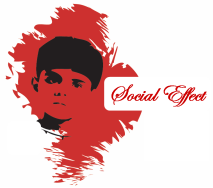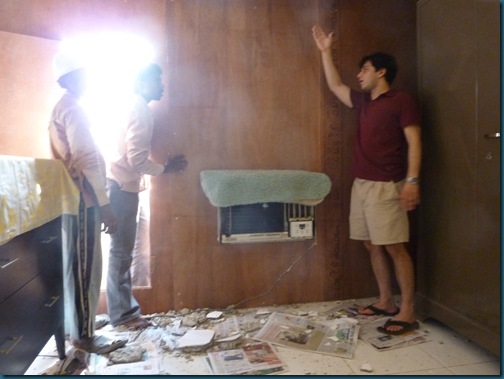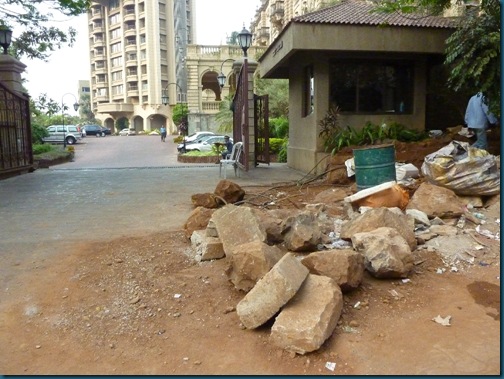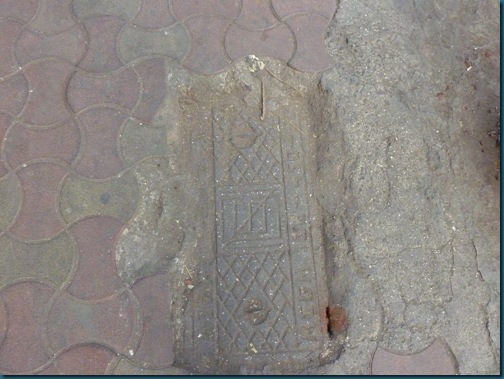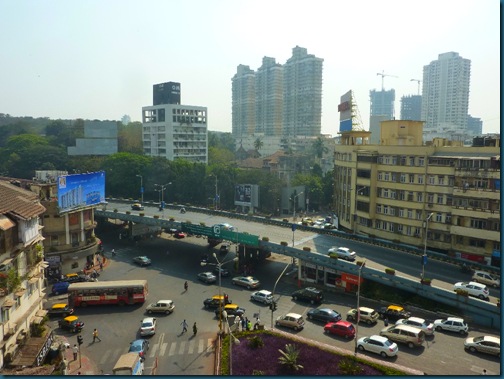Two weeks in and I’ve already settled into a rhythm of sorts. I’ve got a place to stay with my friends Urvaksh and Khursheed, and a base to work out of at the Ashoka office in Bandra. I take the fantastic new sea link every morning which gets me there in a short half hour; an amazing transformation for a journey that used to take us almost an hour longer when I was a child.
Bandra still has its leafy lanes and quiet charm in some places, but in others its a completely different animal. Fancy shops and bars and a new demographic of active young people. Much of the new development that has missed South Bombay seems to have focused here.
Still, for all the new flashiness and technology, the ‘chalta hai’ attitude to quality still persists. Things are regularly badly made and poorly put together. The old roads were always badly made and so were the electrics, but even the new malls are only half built and already in full use. Wires hang freely, just built car parks look 10 years old, and cheap new steps are already chipped. At my friend’s house, builders who don’t have a clue what they’re doing are busy smashing through walls they shouldn’t be damaging. Unqualified electricians are ripping sockets out of walls, and plumbers take wild guesses at where pipes might before taking the tiling apart.
Some obvious causes
- Things are built on inadequate budgets or done as cheaply as possible, so the materials used are poor quality and the labour employed isn’t skilled enough
- Things are built by people who will never use it, and therefore don’t personally relate to the pain of failure
- There is pressure to get value as quickly as possible, so things go into use before they are properly finished
The upshot of all of this is that although basically functional, much of it doesn’t work properly, and costly maintenance and fire-fighting cycles start right from day one. Over time people have just come to accept it as given, because the problem has become too huge and too endemic to manage, and the underlying causes cannot be easily addressed.
There is probably a lesson in this for people funding and delivering social programmes. Building programmes on inadequate budgets, or designing them without having spent enough time on the ground and in collaboration with the people impacted, or rushing into new initiatives simply because of perceived need, is likely to result in programmes that don’t deliver quality and never really create lasting or sustainable change.

